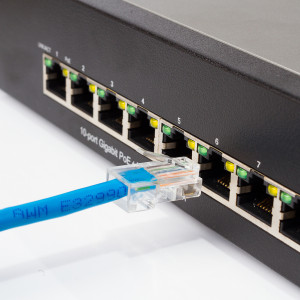A panel of economists invited to brief Congress on the economic impact of the Federal Communications Commission’s net neutrality rules Tuesday predicted the regulations will hurt investment in broadband and slow networks expansion.
“Eight months ago the FCC decided to grab control of the Internet and regulate it like a monopoly utility under Title II,” House Communications and Technology Subcommittee Chairman Greg Walden said in his prepared statement. “Rather than work with Congress to adopt a statute that would punish those who engaged in harmful actions, the FCC yielded to White House pressure and went all in for Title II.”
Earlier this year the FCC voted to regulate Internet service providers as public utility common carrier services, similar to telephone service providers, under Title II of the 1996 Telecommunications Act. The primary goal of the regulations is to bar ISPs from throttling, blocking or prioritizing web traffic, but they also give the FCC the power to regulate the rates ISPs charge edge providers and consumers for service.
“The predictable result is litigation in the courts and uncertainty in the marketplace,” Walden said. “Clearly, the private sector will continue to invest in broadband build-out and improvements. The question is, will that investment plateau or even decline over time.”
The marketplace uncertainty and potential to negatively impact broadband investment is the primary reason ISPs are preparing to challenge the regulations in federal court this December, and the majority of economists called to testify before the House Energy and Commerce Committee confirmed ISPs’ and Republicans’ fears.
RELATED: Dems, Tech Companies Back Net Neutrality Ahead of Court Battle
Many said there wasn’t enough evidence that the rules, effective as of June, had slowed investment, but of the four economists present, the three invited by Republicans predicted investment and growth would slow over time.
Robert Shapiro, co-founder and chairman of Sonecon LLC, an economic advisory firm, said the FCC’s imposition of Title II will likely mean new fees for ISPs associated with subsidy programs, similar to the FCC’s Universal Service Fund for telephone service, and divert ISPs resources from their daily business activities in order to ensure they’re complying with the regulations.
“This reasoning leads us to conclude that Title II would negatively affect ISP investment,” Shapiro said, adding that could mean a decline of 5 to 20 percent annually.
Shapiro said broadband adoption went from 4 to 68 percent of U.S. households between 2000 and 2010 absent regulation, exceeding the adoption rate of telephones, TV, computers and cell phones. Broadband is now accessible to 94 percent of U.S. homes, and capital expenditures by ISPs have only fallen two times since relative to 2015 — in 2001 after the dotcom bubble burst, and in 2009 as a result of the housing bubble, both of which sent the U.S. economy into recession.
According to economic consulting firm Hal Singer, capital expenditures by all wireline ISPs declined 12 percent and wireline and wireless ISPs by 8 percent in the first half of 2015 compared to the same time in 2014.
“No such recessionary conditions held in the first half of 2015,” Shapiro said. “The only change in early 2015 was the FCC’s order to subject ISPs to Title II regulation.”
Chief economic strategist at the Progressive Policy Institute Michael Mandel said AT&T and Verizon topped PPI’s list of the 25 leading domestic “investment heroes” list in 2014, as they had the four years prior. Time Warner Cable and Comcast also made the list, with the broadband industry accounting for the largest growth sector on the list at almost $50 billion in capital spending.
Mandel said PPI and others, including the Georgetown Center for Business and Public Policy and the American Enterprise Institute, have already found declines in the first half of 2015 (via a study written in part by Shapiro), and pointed to the rising costs of the heavily regulated healthcare industry as a case study for what could happen to broadband.
RELATED: Economists Tell Court Net Neutrality is Going to Cost — A Lot
“From 2004 to 2014, real investment per worker in health care, including the pharmaceutical industry, only grew by 17 percent, compared to a 25 percent gain in real nonresidential investment per worker in the entire private sector,” Mandel said. “This investment gap may be one reason why productivity growth is relatively slow in health care, and why the share of consumer spending going to health care has continued to increase.”
Mandel added he couldn’t predict exactly “what is going to happen,” and Shapiro agreed anyone professing to know the exact nature of the impact is “talking through their hat.”
Nicholas Economides, an economics professor at NYU, was the only expert on hand to defend the regulations, which he said would bolster other areas of the Internet economy even if broadband investment declines.
“Network neutrality has facilitated businesses innovation “at the edge of the Internet” without seeking approval from network operators,” Economides said. “The decentralization of the Internet based on network neutrality fueled innovation resulting in big successes such as Google and Skype, as well as a myriad of smaller innovative companies.”
The NYU professor added the decline in investment in the first half of 2015 was almost entirely due to AT&T, which announced years prior an expected decline as a result of finishing a large investment project.
“The appeals process has not ended, and therefore the actual event on which the change in investment decision is supposedly based is not final,” Economides said.
California Democratic Rep. Anna Eshoo agreed with Economides, and said ISPs “created the uncertainty” by challenging the FCC’s rules in court.
“The sky is not falling and we have broadband providers’ own data to prove it,” Eshoo said.
Both sides will make oral arguments before the D.C. Circuit Court of Appeals in December.

